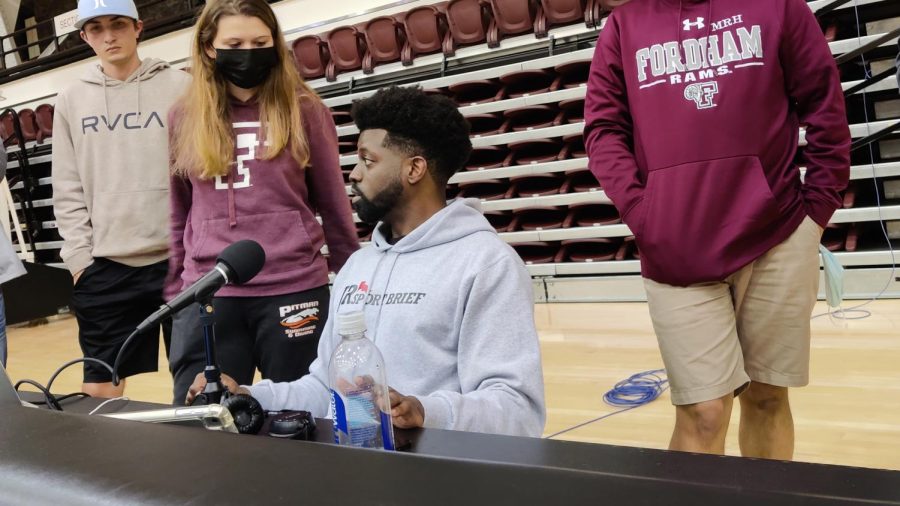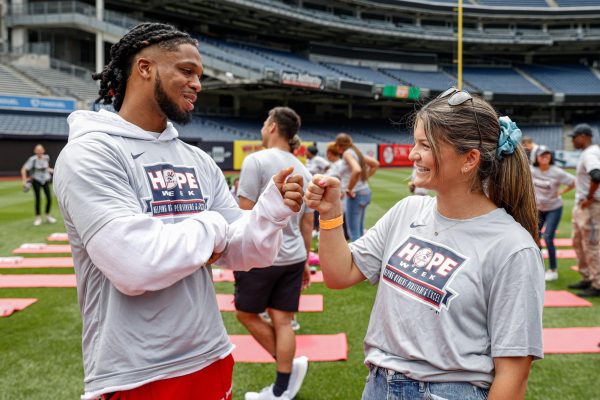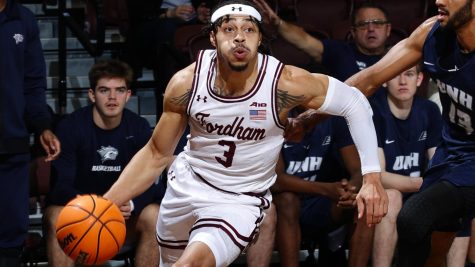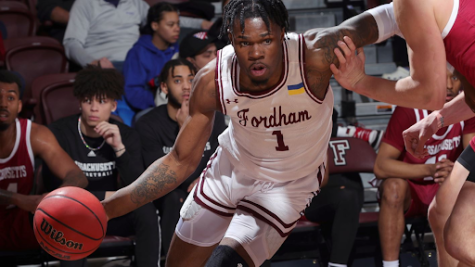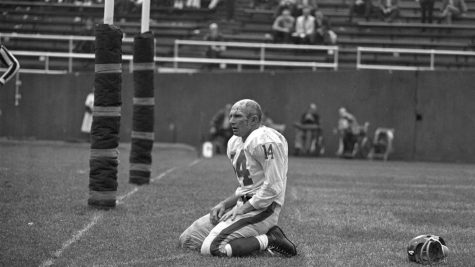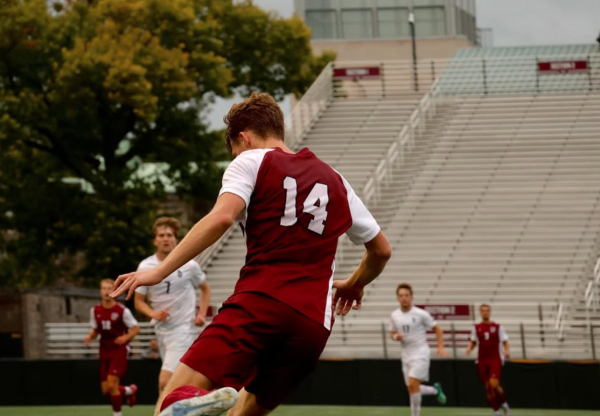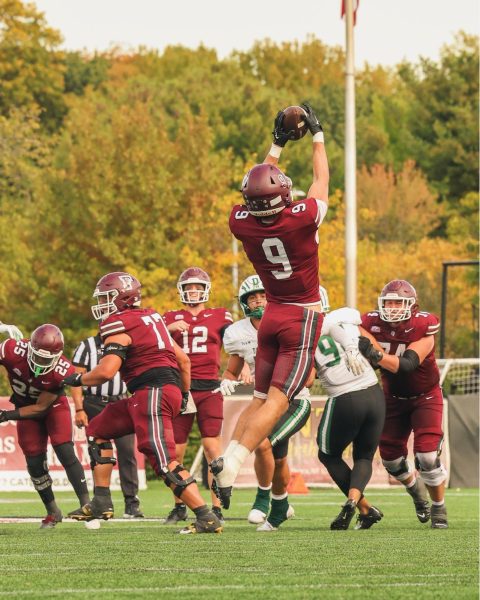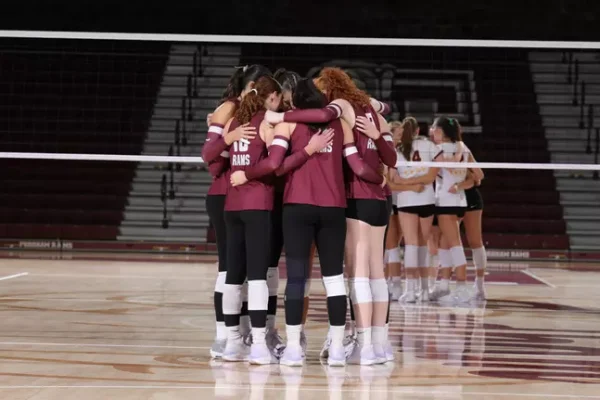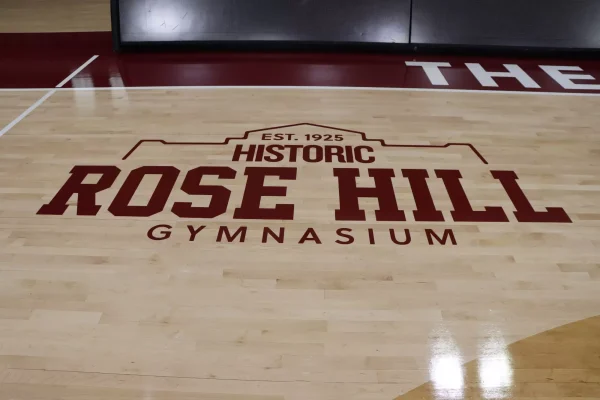JR SportBrief Brings His Media for the Movement Tour Home to the Bronx
JR Jackson, better known as “JR SportBrief,” grew from humble beginnings into one of today’s brightest young sports media personalities and has traveled across the country sharing his advice and experience with the next generation of broadcasters. His latest stop was in the Bronx at Fordham University and WFUV.
Fordham Road. The Metro-North. The Bronx Zoo.
These are some of the sights and sounds surrounding the Fordham Rose Hill Campus that JR Jackson spent his childhood around. “It’s home,” Jackson said. Now, the Bronx native has made his return on Monday night to take his Media for the Movement tour to Fordham University.
The tour, in partnership with Experian and the Special Olympics Unified Champion Schools, will take Jackson across 30 different schools throughout the fall semester, as he shares his advice on his unique start in the media industry and the importance diversity and inclusion play within it.
Fresh off a trip to the Ohio State University, Jackson visited the Bronx on Monday to share his advice with the students of WFUV, the campus’ flagship radio station that has inspired generations of sports broadcasting talents, before conducting his national weekday radio show live from the Rose Hill Gym later that night.
Jackson, better known as “JR SportBrief,” grew from humble beginnings into one of today’s brightest young sports media personalities. His start came from the Bronx, with a family around him that lived and breathed sports. “My family, everyone was a sports fan. So we grew up with sports in a house … It didn’t matter if it was the Giants, the Yankees, Hulk Hogan and Andre the Giant,” he said.
At the same time, sports was never the only thing. “I grew up in a family that was big on learning and education, and also structure,” he said. “I was brought up to be inquisitive.”
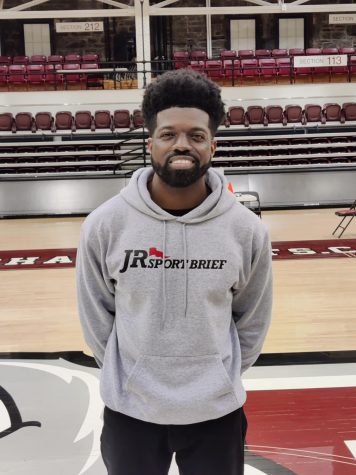
There was no better place for that than New York City. Jackson and his family did not lock themselves in the Bronx but explored the city in its entirety. There was never a weekend without a museum trip. All of it, whether the education or the experiences, gave Jackson a love for literature and writing as a child — and soon enough, public speaking.
Always keeping an eye to the future, Jackson slowly began to notice the rapid growth happening in the digital space. He completed odd jobs here and there, helping out in the production area and learning more about the people around him.
In time, Jackson came to seize an opportunity he saw for himself, thanks to a little push of advice: “I had a TV producer separately tell me, ‘Hey, instead of doing stuff for other people, the internet is blowing up. I know you like sports. Why don’t you take those same principles and do it?’”
That producer was Fred Seibert, co-founder of MTV, who previously worked with Hanna-Barbera and Next New Networks. It was advice Jackson could not ignore. “I was very confident in my own skills. I was confident in the work that I did for others, and I basically followed that same blueprint.”
So, on March 31, 2009, Jackson made his leap into that digital world with his first video on YouTube: “Gary Sheffield, Please Retire!” Featuring its host rocking a Shea Stadium shirt and a Knicks pennant on the wall, it was bold, unique and different. Prior to that title came a name: JR SportBrief.
“I wanted to continue to brand [and] build JR SportBrief and that started even before I put a video online,” Jackson said. The simple term encapsulated Jackson’s entire approach online. “What I want to do is give my sports opinions and ask people theirs back.”
A decade ago, that came through comments on YouTube. Today, with a national CBS Sports Radio show, a weekend spot on WFAN and thousands of social media followers, it can come through anything. “What I started on YouTube and what I do on the radio is really one in the same,” said Jackson.
And one thing that has also remained the same is the name. “I said to myself: Can I take this name to TV? Yes. Can I take this to radio? Yes. Can I take this name with me anywhere? Yes.”
At the time, that name meant nothing. In fact, the New York Yankees even turned down a credential request from this up-and-coming hometown kid of the Bronx. “I’ve been through the ups and the downs,” said Jackson. “People [were] saying ‘Ah, you’re just an internet guy.’ Nobody says that anymore.”
Instead, Jackson found new ways of doing things. If he could not interview CC Sabathia in the stadium, he would do it in the barbershop around the corner. Because of that, his name has really gone everywhere, from his Bronx apartment to the Olympic Games, the Super Bowl and so much more. Jackson’s interview catalog ranges from soccer legend Pele to the late Kobe Bryant and back to where it all started, his first interview with Manny Pacquaio.
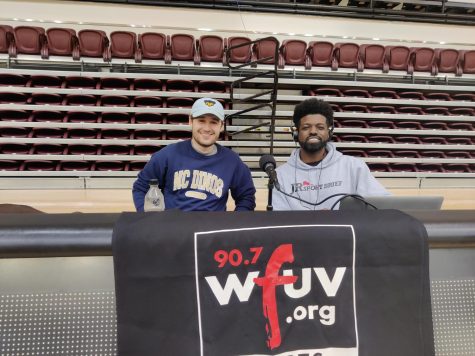
Now, as his YouTube channel with over 100,000 followers and millions of views has taken a backseat, Jackson has found a whole new way of connecting with people as he approaches the second year of his CBS radio show. “It’s fun because I get to dabble and play in a lot of different worlds,” he said.
That 10 p.m. to 2 a.m. weekday show is one of those worlds. It’s a time slot that holds a special place to Jackson, granting him more access to local radio stations than the daytime hours and also acting as a live landing spot when games wrap up each evening. Emphasized by the endless callers coming into his laptop at the Rose Hill Gym, he said, “Radio can become a destination and more of a town hall.”
Even as the digital landscape changes, Jackson never loses sight of that. Nor does he lose sight of the journey of how he got here. There was always confidence and belief in the quality of his work, but he never expected to be on CBS, let alone be giving back to people just like him.
Jackson has done that through his Media for the Movement Tour, pioneering the attributes of creativity and inclusivity. Jackson knows that better than anyone else and hopes for students to take advantage of a unique time in the media world: one that is accessible to everybody.
“I want people to take advantage of, not what I did, but the opportunity that’s there,” he said. “There’s so many different opportunities. You don’t have to wait for other people. And it’s fun for me to share that because I see it.”
He sees that in the campuses he has visited throughout this tour, with one visit to Point Park University standing out. The school had a downtown, street-level studio reminiscent of the one across from the Garden or the Today show. And he watched the students do their craft.
“I sat in the control room and I watched them do the show. And I’m like, they could all go work full-time somewhere right now,” Jackson said, and he wants students to recognize that. “I don’t want people to have to wait for opportunities that they can do now.”
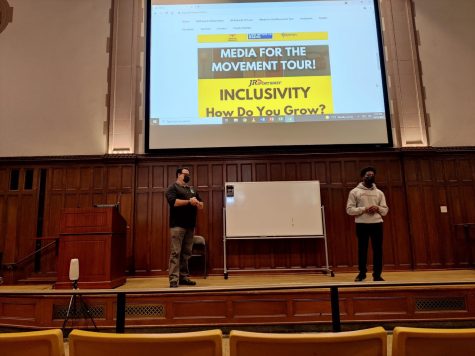
Jackson understands that his path is an unconventional one. Through a nationally-renowned media platform, the students at WFUV are following a different one themselves. “I don’t personally have the Fordham pedigree,” he said, “but I think it was important to have Fordham as part of this tour I am doing.” For one, that is because of the program’s standing, but also because the values Jackson cultivated from his time in the industry remain the same at Fordham. And it’s something the Special Olympics gave to him.
“A few years ago, I went to Special Olympics World Games and I walked into a room and it was on par with Super Bowls and Final Fours, etc,” he said. “It was just like, wow, why do people here have to feel separate from other people just to have fun, just to play games?”
Jackson, as the only African American to have a weekday solo radio show when joining CBS in 2020, understands that feeling, oftentimes being the only Black person or the youngest in a room. He hopes to ensure no one experiences that feeling themselves by creating a more inclusive environment in sports and beyond.
“I’m a big proponent of ‘I don’t care where you’re from or what you look like,’” Jackson said. “Especially in sports, it should be more diverse in storytelling, from the people who produce to the people who are on-air. It’s not just a matter of skin color or where you come from, it’s a matter of ‘Can you do it?’”
He brought that same message to the Keating First auditorium on Monday through a powerful presentation to WFUV students. Jackson spoke about the importance of preparation, or “programming” as he calls it, along with those values of inclusivity. Similar themes were echoed by Tim Flynn, senior director at Special Olympics New York, in detailing the reasons why he works with the Special Olympics today, which stem beyond working with a special needs child himself. He, like Jackson, found a deep desire to give back.
Ultimately, that is what continues to drive Jackson forward. It can seem like a lot from an outside perspective, but to him, “When you enjoy what you do, it doesn’t feel like work.”
Jackson will keep that journey going on this Media for the Movement Tour, with the next stop down on Long Island at Hofstra University before heading south to Florida State University. No matter where he goes next, the JR SportBrief name will travel with him, and so too will all the lessons from an extraordinary career that is only beginning.

Alexander Wolz is a sophomore majoring in communication and culture. He went from writing to assisting and will now be Sports Editing. He also loves video...





































































































































































































